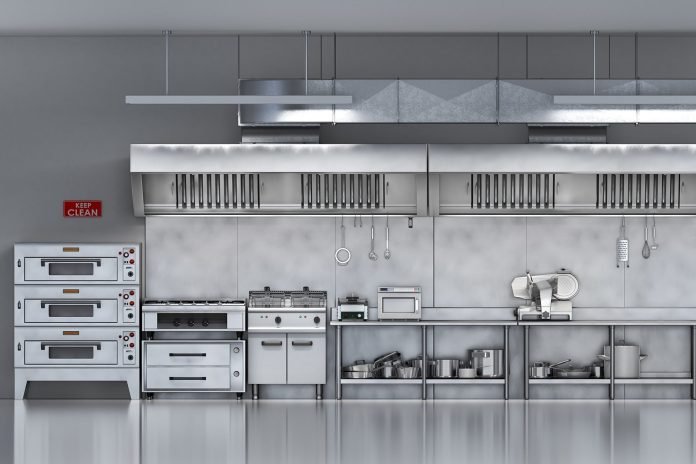Last Updated on February 13, 2024 by Nasir Hanif
Commercial restaurant equipment can be a significant investment and startup cost. For this reason, it’s crucial to do research and acquire the best equipment available to be confident that the purchases you’re making will help your foodservice business be a success. Following the tips listed below, you can procure high-quality restaurant equipment while getting your money’s worth, saving funds, and making a profit.
Table of Contents
Identify a source for top-notch commercial restaurant equipment.
Whether your eatery is a full-service restaurant, cafe, bar, or food truck, you’ll need industry-standard devices. As a restaurateur, it’s your responsibility to rent or purchase furniture, glassware, barware, flatware, cookware, small wares, and kitchen appliances. Venturing into food service typically entails obtaining refrigerators, coolers, freezers, ice machines, grills, ovens, fryers, prep tables, and more to make your establishment functional.
Consider participating in restaurant equipment auctions. Specifically, get in on auctions run by a dynamic marketplace known for helping restaurant, food service, supermarket, and hospitality businesses deal with facility renovations, relocations, closures, and equipment liquidation. Such auctions can be just the event for acquiring high-quality commercial kitchen appliances and supplies to improve your business’ productivity and enforce safety and sanitation. Auctions contain a lot of kitchen equipment produced by various sellers, making them an effective way to get new or used items in good condition that will boost your kitchen’s functionality, productivity, storage capabilities, and more.
Only purchase the equipment you need.
Before buying commercial kitchen equipment for your restaurant, consider planning your menu. Knowing your menu items can help you focus on selecting appropriate appliances you’ll be sure to use frequently. A thoroughly planned menu can help you avoid blowing your budget on a full-size oven that you and your staff may only use once a day. Likewise, you’ll be able to acquire any special equipment you need if the potential labor savings and ability to meet demand can make such an investment-worthy. Estimate the output you’ll need from each machine and purchase the correct size. Ultimately, getting smaller-sized equipment will impair service, slowing it down and angering your patrons. Likewise, buying equipment that’s too large could cost you thousands in energy over the machine’s lifespan.
Make sure your business meets local codes.
Knowing that the appliances you select are in good condition will be your priority when purchasing kitchen equipment. It’s equally important to ensure your establishment is in good condition. Double-check the fire, health, and building code requirements. Local codes across the country may differ, so be sure to find out what’s acceptable in your area. Ensure that the equipment you’re considering and the layout you plan to implement is in line with local codes.
Check to see if your new equipment will be compatible with your utilities.
Lastly, it’s crucial to know where the utility outlets are in your kitchen and serving area. Some of the equipment you’re considering for your restaurant may require knowledge of the location of your utilities and extra features. Regarding water, for instance, you’ll have to be aware of the water temperature and pressure. Likewise, regarding power, it can be imperative to know how much current draw your circuits can handle and which plugs your outlets can utilize.
Ultimately, when procuring restaurant equipment, it’s essential to consider the utility costs you’ll incur over the unit’s lifespan. In addition to researching equipment providers and local building codes, investigate the life expectancy of each appliance model you’re considering. Following these tips and taking the extra time and care could help you determine that spending more money on a unit that typically lasts longer than competing models might be beneficial.
A Quick Overview
Procuring restaurant equipment can be challenging, especially for new restaurant owners who may not be familiar with the process. To ensure a successful purchase, here are some unique tips to consider when procuring restaurant equipment.
Firstly, it’s essential to identify your needs and budget. Determine the equipment necessary for your restaurant and prioritize based on your budget. Additionally, research the latest trends and innovations in restaurant equipment to ensure you purchase modern, energy-efficient equipment that will save on costs in the long run.
Secondly, consider the reputation and warranty of the equipment supplier. Look for a supplier with a good track record of delivering quality products and excellent customer service. Ensure the equipment has a warranty and that the supplier provides after-sale support.
Thirdly, consider the size and layout of your restaurant when purchasing equipment. Choose equipment that fits your space and workflow to ensure efficiency in the kitchen. Additionally, consider the maintenance requirements and ease of cleaning when purchasing.
Fourthly, consider leasing equipment instead of purchasing outright. Leasing allows for flexibility in upgrading equipment and can be cost-effective, especially for new restaurant owners.
